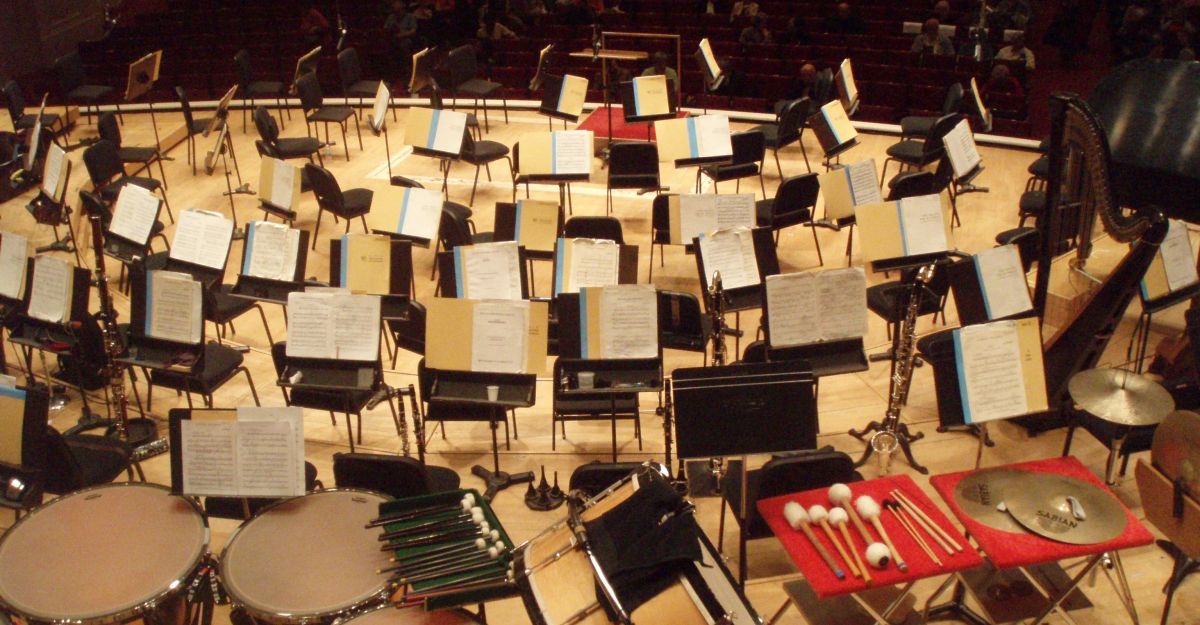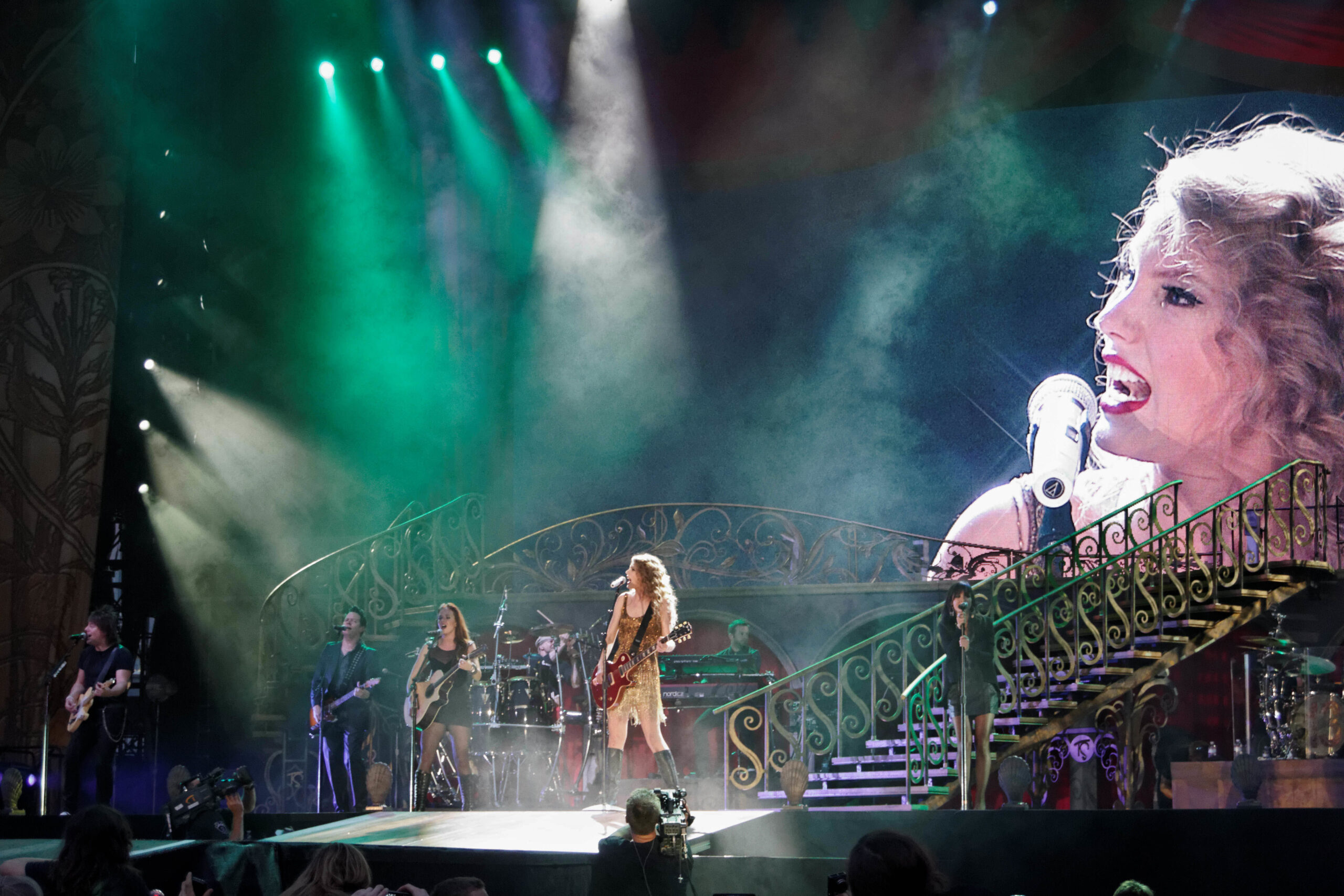Fifteen West Papuans from the band Sorong Samarai beat their drums in syncopated unison. A powerful rhythm echoes around the Sidney Myer Music Bowl. Dancers leap gracefully around the stage, some trailing the West Papuan Morning Star flag behind them as a cape. Their large audience is entranced. Then the song ends. Claps, cheers, then quiet, as Airleke walks to the front of the stage.
‘This is a kwakumba,’ he says, holding up a bamboo flute. ‘I’ll play a song for you now on this instrument. With this sound, I will take you to the highlands of West Papua.’
The bubbling, haunting melody from the kwakumba swirls around the audience. It sounds like birdsong. A mourning, pensive contrast to the fierce drumming earlier.
The melody captures the essence of West Papua’s natural beauty, conveys mourning for the unrealised ambition of West Papuan independence, and articulates hope for the ongoing campaign. Of course, the thousands of Melbournians in the audience are not literally transported to the forested mountains of West Papua, but the melody sends palpable ripples through us. We became connected to that place, coming to feel for the musicians and empathising with their struggle for self-determination.
*
Both of us were at that performance. Ronny was on stage, leading the fierce percussion ensemble playing a collection of long, thin tifa drums and larger wooden slit log drums. Sebastian was in the audience, enjoying the music and trying to understand it for his research on West Papuan musical practices. Through practice and research, we have come to think about music as a form of cultural diplomacy.
Transporting Melbournians to the highlands of West Papua is strategic and political. This concept helps unravel the puzzle: how can Aireleke evoke in his audience images of West Papua’s forested highlands, and what does this mean for the broader political campaign? The starting point to answering these questions is that music communicates with more than words — it engages feelings and bodies, too. Paying attention to its inexplicable power to make people feel things shows why music is so important to the West Papuan community in Melbourne and its unique role among the many other political approaches of the independence campaign.
*
On 1 December 2023, West Papuan people and their supporters around the world will raise the Morning Star flag. In Melbourne, a group of West Papuan and First Nations musicians, including Sorong Samarai, will perform at Hamer Hall for the third installment of Blaktivism, celebrating Indigenous self-determination and resistance to colonialism.
Raising the Morning Star flag on 1 December commemorates sixty-two years since the flag was first raised in Netherlands New Guinea, marking the beginning of an independent West Papuan state with its own flag, national anthem, and state seal.
However, that sense of liberation was short-lived. The next year, Indonesia occupied West Papua to thwart what they condemned as a Dutch puppet state and incorporate the territory in the newly independent Indonesian state. They have maintained their control of it ever since, abetted by the United Nations, the United States, and Australia.
The Indonesian administration of the region is characterised by extensive extraction of natural resources like gold, copper and timber, clear-felling of rainforests for palm oil plantations, mass migration programs of Javanese people to West Papua, and — according to human rights activists — a whole range of human rights violations against West Papuan people continuing the campaign for independence. As a result, 1 December is both a day of celebration and of mourning.
*
In our songs, we musicians express everyday life, suffering, and what we see. We use those stories. We write songs about the struggle. The struggle is in the words and the rhythms.
My generation was born into the struggle. We grew up listening to it on tape. Our intention is to spread the word of the campaign. We hope to make our audiences aware of our ongoing struggle for independence and galvanise support. On top of making the intellectual argument, communicating through music can make audiences feel things with us: solidarity, anger, joy, and passion. We see audiences dance along with us, see their faces as they respond to our messages, feel the growing solidarity. This is why we play. As a form of cultural diplomacy, music is a way for us to connect with people, communicate our story and our political position and generate action. We don’t just play for fun — we make music as our contribution to the broader struggle.
*
The strength of music as a diplomatic tool comes from its ability to make people feel things. West Papuan musicians talk about music’s intensity, its power to affect both themselves and their audiences, but it is impossible to find the words to precisely describe the feeling. This suggests that the power of music is not just consciously experienced, but engages the body and all the senses as well.
In the social sciences, this dimension of connection can be called affect. Affect is distinct from emotion, because it happens in the body, before the brain translates raw sensations into emotions that we can then talk about with words. Emotions are socially and culturally shaped, our feelings are influenced by social expectations. On the other hand, affects are raw, intense, and provide an insight into the whole body. Drawing on music’s power to affect allows musicians to connect with their audiences and gives them a direct link to their audience’s sensing bodies.
West Papuan musicians know this powerful, affective dimension of music well, because we experience it ourselves. Making music connects West Papuan people with the memories of our homeland and relatives there. This is especially important when many in the community cannot travel home: their previous political activism or connections with activists in West Papua make them vulnerable to threats and retribution. They live in exile, unable to visit their parents, siblings, and the places they call home. Making music together generates a sense of shared community for us in Melbourne.
Community events all feature sing-sings, a Tok Pisin word for a festival or performance with the important element of collective participation. Singing and playing together transforms many independent bodies into a cohesive unit, attuned to each other and aligned to create harmony. Community members from different language backgrounds (there are hundreds of distinct Indigenous languages in West Papua) and political opinions on the independence movement come together when they make music. For West Papuan people living in Australia, music is a powerful means of resilience and hope. Making music together embeds the spirit of nationalism in hearts and minds.
When Sorong Samarai takes to the stage again on 1 December 2023 to commemorate the first time the Morning Star flag was raised, they have one goal: spread the message of the struggle through song. They will use their drums, kwakumba, guitars, and voices to connect with audiences and communicate their political position. These are their weapons in the fight, which they use to build grassroots support around a sense of hope. The approach is a creative and constructive response to the decades of stagnation in the campaign for West Papuan self-determination.



